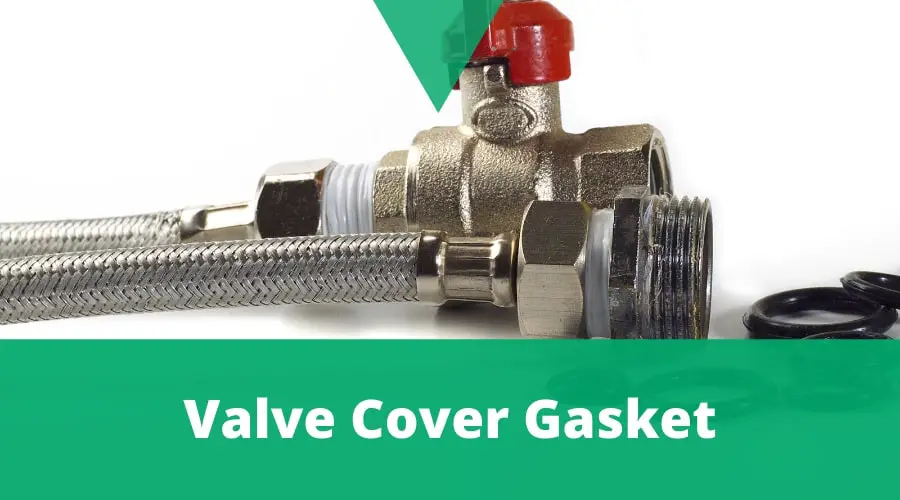Last Updated on August 27, 2022 by admin
In order to work, cars require a considerable quantity of liquid. Your automobile needs help preventing all of that liquid from seeping out, whether it’s oil, coolant, or gas; this is where gaskets come in. Engines are composed mainly of various components.
To protect these pieces from shifting or moving, they’re all fastened, clamped, and snapped together. However, if there are no gaskets, an engine element might leak regardless of how firmly connected. There are two types of gaskets, and this article will explain the differences between the Valve Cover gasket vs. Head gasket in terms of functioning, purpose, and replacement costs.

Table Of Contents
Gaskets
It connects the engine’s block to its head and is a critical component of the machine. It prevents both combustion aspects of the engine from leaking. This implies that the gasket is in charge of covering off the engine section where the coolant passes through. It’s a technique to keep your car from overheating by sealing the portion of the engine where oxygen and fuel mix so it can flow.
The distinction between Valve Cover Gasket and Head Gasket
Within the approximate region of your car’s engine, several different gaskets can be found. The head gasket and valve cover gasket are the most well-known gaskets, but there is also an intake manifold gasket and an exhaust manifold gasket. All of these gaskets serve critical functions in your vehicle, but we’ll focus on the valve cover and head gaskets today.
Valve Cover Gasket

Your engine’s cylinder head has a valve cover on top of it. A valve cover gasket is responsible for storing all of the engine’s oil between the valve cover and a cylinder head. Valve cover gaskets are composed of molded rubber and are designed to fit exactly when they’re set for the first time.
- Importance– Its purpose is to prevent oil from leaking out of your engine as it goes through it; therefore, a leaking valve gasket is an urgent indicator that it needs to be changed.
- Durability– A valve cover gasket’s lifespan is difficult to predict. The rubber that composes the valve cover gasket might begin to break down and deteriorate with time, resulting in oil seeping from your car. But, in general, you shouldn’t have to pay for valve cover gasket repair more than once or twice over the lifespan of your vehicle.
- Causes of Leakage– The ambiance in which you drive and keep your car will, more often than not, be the most critical factor in its decline. If you reside in an area where it gets extremely hot or cold, the valve cover gasket may shrink, fracture, or even rot over time. A few nuts that secure your valve cover might potentially come free, allowing dust and junk to enter the valve cover gasket. This might cause your valve cover gasket to fail sooner than intended, as well as oil to seep from your vehicle without notice.
- Faulty Valve Cover Gasket Symptoms– Firstly and importantly, keep an eye out for any oil leaks beneath your vehicle. It’s possible that your valve cover gasket is to blame for an oil leak in your car.
When you drive with a faulty valve cover gasket, you may notice a burning smell beneath your hood. This happens when oil leaks from your vehicle and lands on other car parts rather than flowing down the ground.
- Replacement Cost of a Valve Cover Gasket– Replacing a faulty valve cover gasket isn’t always the costliest engine repair. Valve cover gasket replacement will need a minor investment in your vehicle. The estimated cost of a valve cover gasket repair is between $240 and $320 in most cases. The valve cover gasket will cost you less than $100; however, the labor connected with the task could cost more than $200 in some cases.
Head Gasket

The region between an engine block and cylinder head is where the head gasket is situated. This minor but crucial component seals the internal combustion process, letting coolant and oil circulate through the engine to cool and lubricate it. Similarly, the head gasket seals the engine’s combustion chamber.
- Importance– The combustible engine’s head gasket is a critical component. The head gasket guarantees that the pressure produced by the ignition of gasoline vapors by the spark plugs stays within the combustion chamber. Furthermore, while oil and coolant serve necessary functionality, they cannot be mixed to execute their duties effectively. The head gasket separates the chambers to prevent fluid contamination.
- Durability– An average head gasket lasts 200,000 miles, roughly similar to a typical car’s lifetime. It implies that if you take care of your vehicle and keep up with the maintenance plan, you should never have to deal with a blown head gasket.
- Causes of Damage– An overheated engine is the most typical cause of a blown or broken head gasket. A shortage of coolant inside the radiator, generally owing to a leakage, causes high engine temperatures.
Furthermore, oil and coolant passages may start to seep into places they shouldn’t. If coolant gets into a combustion chamber, it mixes with the oil and dilutes it, decreasing the system’s cooling capacity and causing engine overheating.
- Blown Head Gasket Symptoms– Overheating due to a shortage of coolant is, of course, the most prevalent sign. Discolored oil, which suggests a blend of coolant and engine oil, as well as white, blue, or grey smoke and a lack of power, are further indications.
- Replacement Cost– Depending on the workshop and the car model, a head gasket replacement may cost anywhere from $700 to thousands of dollars. There will unquestionably be two costs: one to repair the head gasket and one to replace it.
The head gasket itself is reasonably priced. The labor is where the expenditures start to mount up. A head gasket repair typically costs between $1,400 and $1,600. This might increase to $2,500 depending on the engine.
How to Replace a Valve Cover Gasket
Conclusion
Gaskets are essential components of a vehicle for effective performance. Any problem with the gaskets should not be overlooked and should be addressed as soon as feasible. Hopefully, this article has given you a better understanding of a Valve Cover Gasket vs. Head Gasket. This will assist you in taking proper care of your auto parts to minimize damage and additional maintenance expenditures.
